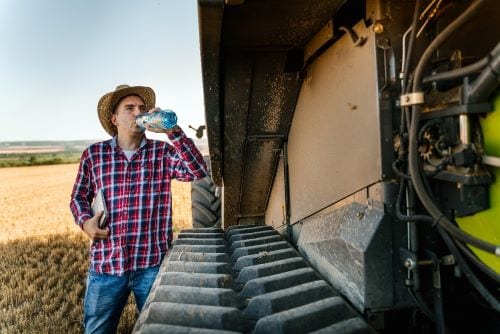Rhabdomyolysis
Prevention
What can I do to prevent rhabdo?
You can’t completely eliminate your risk for rhabdo, because we currently don’t know all of the risk factors. However, there are ways you can lower your risk.

Taking breaks in a cooler area can help prevent rhabdo.
- Be aware that job or recreational activities involving exertion and/or heat exposure could increase your risk for rhabdo and try to avoid these risk factors if possible.
- Learn the signs and symptoms of heat-related illnesses and take steps to prevent getting overheated. Take frequent rest breaks and use cooling stations if available. More information on heat stress and heat-related illness can be found on the NIOSH Heat Stress page.
- Become acclimatized to your physical activity level and the heat before working for long periods of time. Keep this in mind when returning to work from vacation or starting a new job in a different climate.
- Stay home from work when you’re sick. Many illnesses (such as the flu) and cold medications may increase your risk for rhabdo. Staying home when sick will also protect your coworkers from getting sick.
- Stay hydrated. Drink caffeine-free and low-sugar products. Avoid alcohol use when working in the heat.
If you start experiencing any rhabdo symptoms, stop your current activity right away, cool down, start drinking fluids, and go to a healthcare provider to get checked for rhabdo.
What can employers do to prevent rhabdo?
Employers can help protect their employees from developing rhabdo by implementing the policies and procedures listed below:
- Have a heat stress management policy to decrease risk of heat-related illness that could lead to rhabdo. Follow the guidelines presented in the NIOSH Heat Stress recommendations.
- Allow and encourage employees to seek medical care when they have rhabdo symptoms. Let employees know they can return to work once they are cleared by their doctor.
- Encourage employees to take sick leave when sick, as many illnesses increase the risk for rhabdo.
